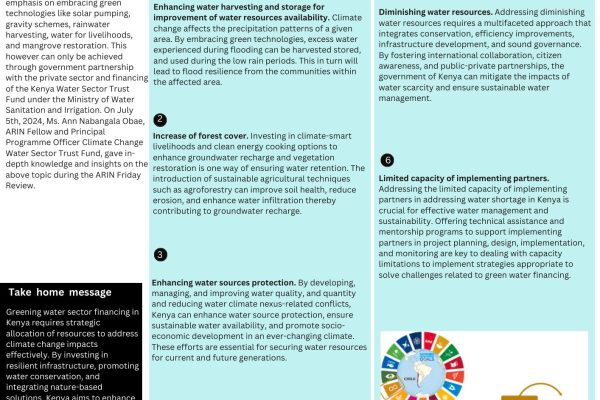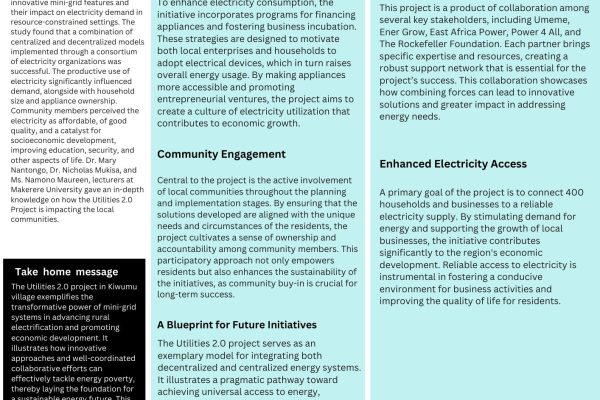Introduction.
Climate change’s effects on air quality in developing economies is a complicated and critical concern with major implications for equality, economic growth, and public health. For governments to address this issue, coordinated efforts at all levels of government are required to reduce greenhouse gas emissions, improve air quality monitoring and administration systems, and help vulnerable populations develop their capacity for adaptation. On March 22, 2024, Mr. Peter Waswa, MSc. Hydrology-Rhodes University gave insights on the above topic during the ARIN Friday Review.
Vital Messages
Health Impacts. Climate change-related poor air quality has serious health implications, especially in developing nations with constrained access to healthcare. Heart disease and respiratory illnesses like asthma can worsen when exposed to air pollutants including tiny particles in the air and ozone. These health effects, which disproportionately affect vulnerable groups like children, the elderly, and low-income communities, can lead to higher healthcare expenses, reduced income, and even premature deaths.
Increased Pollution. Air pollution can become more intense due to climate change in several ways. For instance, an increase in temperatures can cause chemical reactions involving pollutants from industry, cars, and other sources that result in ozone formation at ground level, a potentially dangerous pollutant. Furthermore, weather patterns may vary due to climate change, resulting in more intense and frequent wildfires that emit large volumes of pollutants into the atmosphere.
Economic Consequences. The economic impact of air pollution caused by climate change is enormous in emerging economies. Besides raising healthcare costs, low air quality can lower economic productivity by increasing employee inefficiency and unavailability. Furthermore, industrial sectors like agriculture and tourism could be negatively impacted by crop failures, due to extreme weather conditions, harm to biodiversity, and a decline in tourists as a result of concerns about the health hazards associated with air pollution.
Policy Challenges. Effective legislative policy frameworks and international collaboration are vital to effectively address climate change’s effects on air quality in developing nations. However, due to a lack of funding, organizational vulnerability, and conflicting development strategies, developing countries are often unable to put effective measures and policies into practice. To support these nations in embracing new technology, enhancing monitoring and evaluation systems, and increasing their resilience to the effects of climate change, international cooperation, and assistance are crucial.
Conclusion.
In conclusion, quick and concerted action to cut emissions and enhance air quality is required due to the impact of climate change on the quality of the air in developing countries. We can all look forward to a healthier and more sustainable future if we work together to put sustainable solutions into effect.




